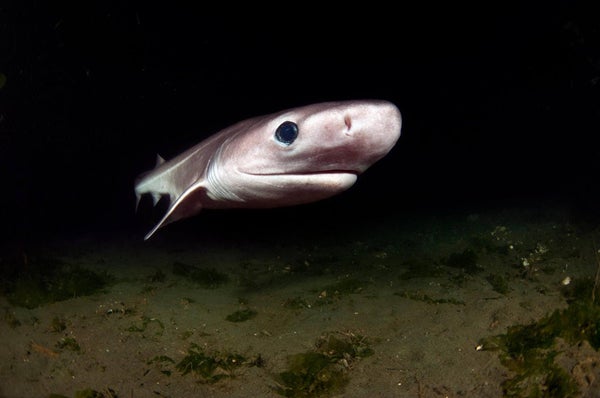Deepwater Sharks Are Threatened by Demand for Liver Oil
One in seven species of deepwater sharks and rays is threatened with extinction because of the liver oil and meat trade and emerging fishing technologies that make it possible to catch deep-sea fishes
A bluntnose sixgill shark (Hexanchus griseus) off Puget Sound.
The surging market for shark liver oil, found in products ranging from dietary supplements to cosmetics, is posing a major threat to deepwater shark species—those that dwell in the inky black waters at least 200 meters below the surface—which use adaptations such as bioluminescence to help them thrive.
Shark liver oil is used as a source of squalene, which is used in beauty products such as skin care items because it is an emollient and antioxidant. It can be found in dietary supplements, as well as in vaccines, where it helps stimulate the body’s immune response.
The rising demand for liver oil (along with meat) has driven shark fishing to the point where one in every seven known shark and ray species is threatened with extinction, according to a new study published on Thursday in Science. That’s a particular concern when it comes to species that frequent the depths because “about half of all sharks are considered deepwater species, and we are still finding new species of deepwater sharks all the time as we explore more of the deep ocean,” says the study’s lead author Brit Finucci, a fisheries scientist at New Zealand’s National Institute of Water and Atmospheric Research. Also of concern is the fact that these species “are very susceptible to overfishing because they have slow growth, late maturity and low fecundity—even more so than shallow water species. Some species take decades to mature and then give birth to only one or two pups every few years.”
On supporting science journalism
If you’re enjoying this article, consider supporting our award-winning journalism by subscribing. By purchasing a subscription you…
Read the full article here







